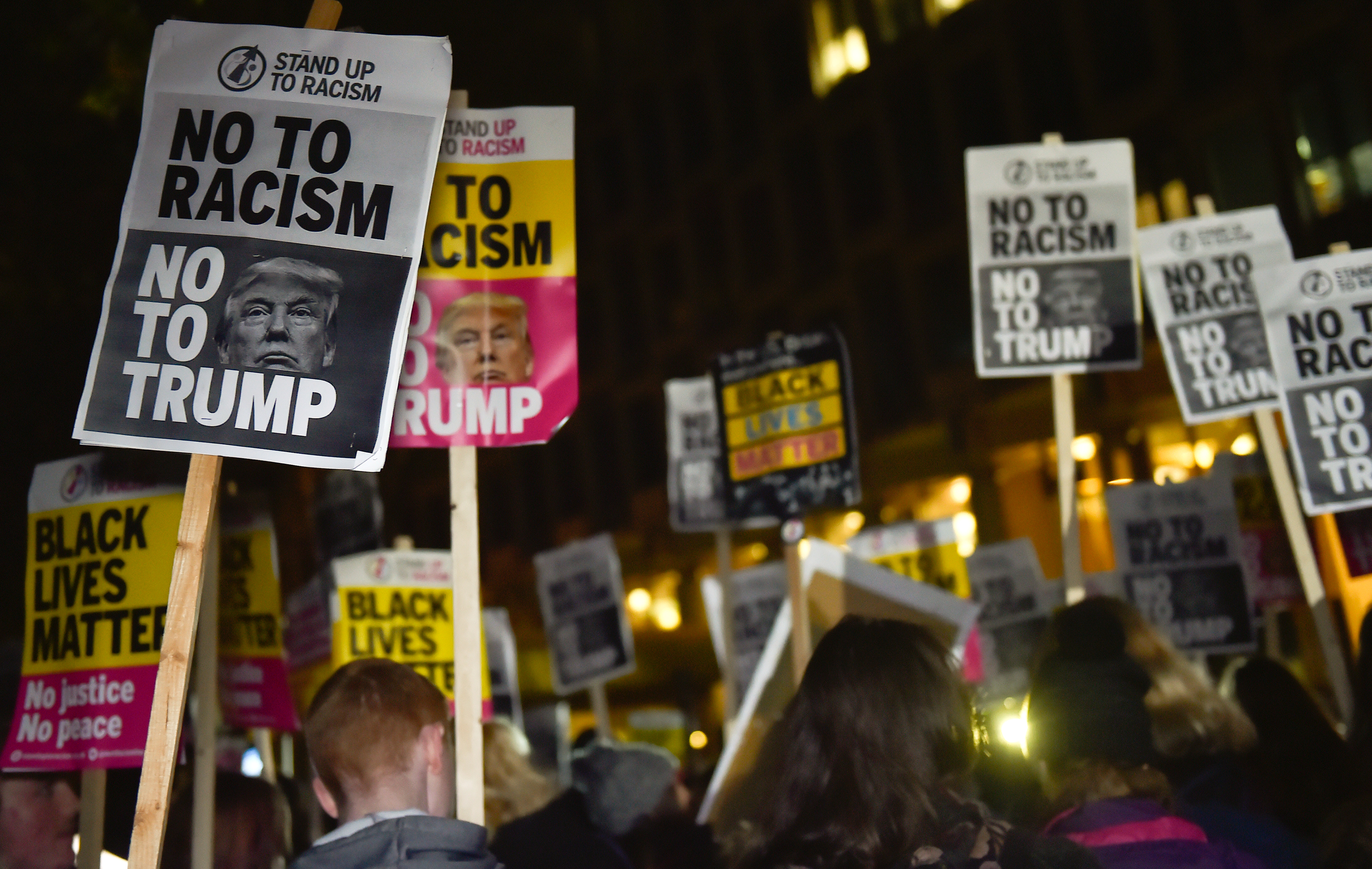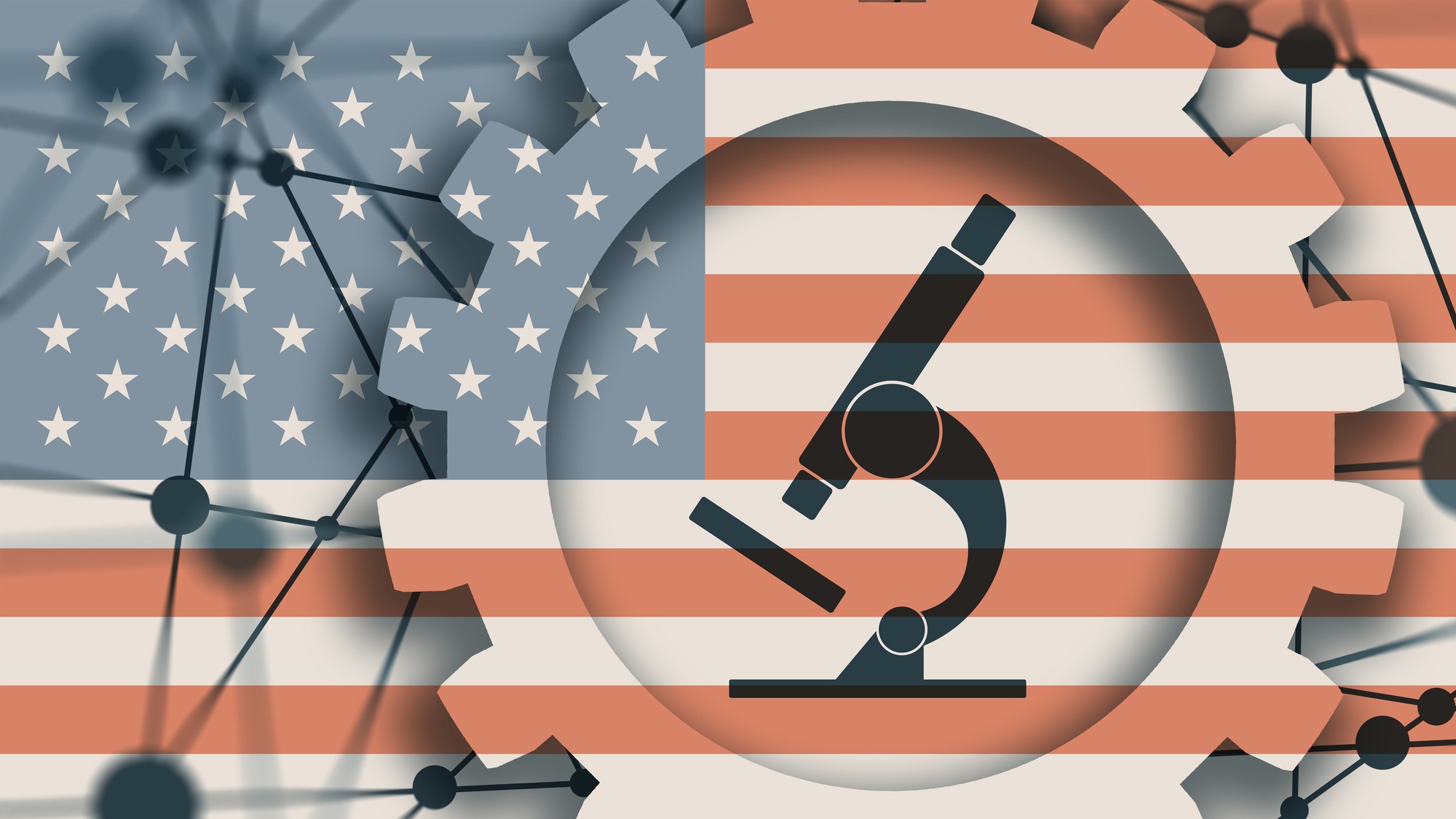America has not entered a new era of rabid racism... yet
The alt-right remains a marginal, largely anonymous group. But we must be vigilant.


It wasn't just frustration or sour grapes. When former Hillary Clinton communications director Jennifer Palmieri exasperatedly said last week that "if providing a platform for white supremacists makes me a brilliant tactician, I am proud to have lost," she was voicing a widely shared concern that Donald Trump has fueled the resurgence of racism as a mainstream force in American politics.
And it's true, in a sense. There has been a marked and worrying increase in the number of racists creeping out of the shadows and into public life. But for all the ink spilled on the "alt-right," they remain a marginal, largely anonymous group. Advocacy of a white ethnostate is a fringe position even among Americans who could fairly be described as racist.
Sure, former KKK leader David Duke, America's most famous racist, has used Trump to get his name back in the headlines. But a closer look at Duke's Louisiana Senate election results actually argues against the racism revival narrative. Duke won 3.4 percent of the vote, even as Trump carried the state with over 58 percent. In the early 1990s, Duke made it to runoffs for senator and governor, winning around 40 percent of the total vote and a majority of whites both times.
Subscribe to The Week
Escape your echo chamber. Get the facts behind the news, plus analysis from multiple perspectives.

Sign up for The Week's Free Newsletters
From our morning news briefing to a weekly Good News Newsletter, get the best of The Week delivered directly to your inbox.
From our morning news briefing to a weekly Good News Newsletter, get the best of The Week delivered directly to your inbox.
Most Trump supporters aren't racist. Instead, they understand themselves to be practicing a race-neutral civic nationalism, as does the president-elect himself. "We condemn bigotry and prejudice in all of its forms," Trump said at the opening of his Rust Belt victory tour. But many white American civic nationalists do feel besieged by attacks on Thomas Jefferson and Andrew Jackson, the refusal of prominent athletes to salute the flag over racially charged issues, and the idea that their patriotism is at least implicitly white nationalist.
Of course, Trump does bear some responsibility for the racial tinge of his supporters' renewed nationalism. He has stoked racial resentment, sometimes through poorly chosen words and other times through deliberate actions such as his "birther" crusade. The man who would build a wall along our border has never truly erected the necessary wall between legitimate concerns about immigration and darker motives.
This is partly why the conditions are indeed ripe for genuine and widespread racism to make a comeback in America, insofar as it ever really left. Whites are shrinking as a percentage of the population. The white working class is suffering, socially and economically. Far too many people on the right are isolated from communities of color, in some cases literally uncomprehending of minorities' fears, concerns, and aspirations. Meanwhile, the left is increasingly defined by identity politics and fighting "white privilege," at a time when millions of whites aren't feeling so privileged.
"Frankly, if you're a white family living in Clay Country, Kentucky, the poorest county in American, [in] which the poverty rate is about 40 percent and whose population is 94 percent white, wouldn't this concept kind of tick you off?" asked former Democratic Sen. Jim Webb at a recent American Conservative magazine conference. "Wouldn't you see it as reverse discrimination?"
To many, the answer is yes. A September ABC News/Washington Post poll found that nearly 40 percent of Trump supporters thought minorities have too much influence in society while 53 percent of Clinton voters thought whites had too much influence.
"White voters in this election behaved like a minority group," observed Fox News' Brit Hume. And their argument runs roughly thus: Other groups get to practice identity politics; there's a Congressional Black Caucus, Congressional Hispanic Caucus, a National Council of La Raza; why can't whites play this game?
Politicians are forced to apologize for saying "all lives matter," much less white lives matter. Samantha Bee can say white people "ruined America" without fear of the consequences she would receive for saying something similar about any other group, much as Susan Sontag was celebrated rather than reviled as a racist after saying white people were the cancer of human history.
The history of racism in this country is a powerful (and, in my view, correct) counterargument to white identity politics. But the term racist is often overused. "'White supremacist' is a new way of saying 'racist' while stepping around the steadily increasing awareness that that word, too, is being wielded in sloppy ways," writes John McWhorter.
This election isn't necessarily the beginning of a new age of racism. It is, however, a warning that things could get much worse.
A free daily email with the biggest news stories of the day – and the best features from TheWeek.com
W. James Antle III is the politics editor of the Washington Examiner, the former editor of The American Conservative, and author of Devouring Freedom: Can Big Government Ever Be Stopped?.
-
 Scientists are the latest 'refugees'
Scientists are the latest 'refugees'In the spotlight Brain drain to brain gain
-
 5 dreamy books to dive into this July
5 dreamy books to dive into this JulyThe Week Recommends A 'politically charged' collection of essays, historical fiction goes sci-fi and more
-
 6 sleek homes for modernists
6 sleek homes for modernistsFeature Featuring a concrete-and-steel home in South Carolina and a renovated 19th-century former carriage house in Pennsylvania
-
 The last words and final moments of 40 presidents
The last words and final moments of 40 presidentsThe Explainer Some are eloquent quotes worthy of the holders of the highest office in the nation, and others... aren't
-
 The JFK files: the truth at last?
The JFK files: the truth at last?In The Spotlight More than 64,000 previously classified documents relating the 1963 assassination of John F. Kennedy have been released by the Trump administration
-
 'Seriously, not literally': how should the world take Donald Trump?
'Seriously, not literally': how should the world take Donald Trump?Today's big question White House rhetoric and reality look likely to become increasingly blurred
-
 Will Trump's 'madman' strategy pay off?
Will Trump's 'madman' strategy pay off?Today's Big Question Incoming US president likes to seem unpredictable but, this time round, world leaders could be wise to his playbook
-
 Democrats vs. Republicans: which party are the billionaires backing?
Democrats vs. Republicans: which party are the billionaires backing?The Explainer Younger tech titans join 'boys' club throwing money and support' behind President Trump, while older plutocrats quietly rebuke new administration
-
 US election: where things stand with one week to go
US election: where things stand with one week to goThe Explainer Harris' lead in the polls has been narrowing in Trump's favour, but her campaign remains 'cautiously optimistic'
-
 Is Trump okay?
Is Trump okay?Today's Big Question Former president's mental fitness and alleged cognitive decline firmly back in the spotlight after 'bizarre' town hall event
-
 The life and times of Kamala Harris
The life and times of Kamala HarrisThe Explainer The vice-president is narrowly leading the race to become the next US president. How did she get to where she is now?
